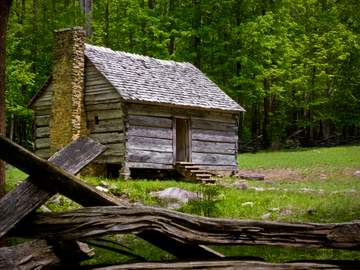What to KnowHillbilly and redneck are both used—often though not always as insults—to refer to someone from a rural area, and usually from the southern United States. Redneck suggests someone who belongs to the white working class, is uneducated, and has offensive opinions, while hillbilly suggests someone whose ways are backward because they live in remote hills or mountains.

Redneck usually refers to a white person who lives in a small town or in the country especially in the southern United States, who typically has a working-class job, and who is seen by others as being uneducated and having opinions and attitudes that are offensive. Redneck is also sometimes used as an insult for someone whose opinions or behaviors are like those described in the previous sentence, regardless of where they live or their economic class. We label these two senses of redneck “sometimes disparaging” and “often disparaging,” respectively, which means it is sometimes used—especially when self-applied—in positive ways:
I already knew that Parton is an icon in the L.G.B.T.Q. community, and within the crowd a group of Dolly drag queens were leading the audience in swaying together to some slow song. I was amazed to see, among the people swaying, old men in cowboy hats, goth-looking teenagers, some dude wearing muddy boots with a T-shirt that said “Proud Redneck.”
— Sarah Smarsh, quoted in The New York Times, 7 Dec. 2020
Hillbilly, as a term for someone regarded as uneducated, is also often disparaging, but it is used less to suggest that a person has offensive views and more that they’re dimwitted or simple-minded because they live in the country (usually among hills or mountains) far away from cities with more (or presumably better) educational opportunities. Historically, hillbilly has tended to be used especially to refer to people who dwell in mountain ranges such as the Ozarks and southern Appalachians, but it has also been used for country folk as far away from the U.S. South as Australia. Like redneck, hillbilly is also sometimes proudly self-applied or otherwise used as a positive descriptor:
Dad was intelligent, quick-witted and thoughtful. When people responded to “How are you” with “I’m fine,” my dad would answer, “I used to be fine, nowadays I’m just ruggedly handsome.” Sometimes he could be what I affectionately refer to as a hillbilly philosopher.
— Gregory Royal Pratt, The Chicago Tribune, 15 Nov. 2021
Hillbilly is also less likely to refer to a rural white person than redneck, but rather anyone living a rural lifestyle in a rugged, isolated place:
In small cities and towns, the life of a black coal miner in western Kentucky was more similar to the life of an Eastern counterpart than different. Just as the lives of hillbilly black folks were the same whether they lived in the hills of eastern or western Kentucky. In the Kentucky black subcultures, folks were united with our extended kin, and our identities were more defined by labels like “country” and “backwoods.” It was not until I went away to college that I was questioned about Appalachia, about hillbilly culture, and it was always assumed by these faraway outsiders that only poor white people lived in the backwoods and in the hills.
— bell hooks, Appalachian Elegy: Poetry and Place (2012)




